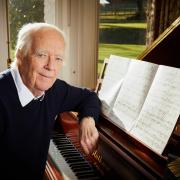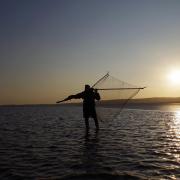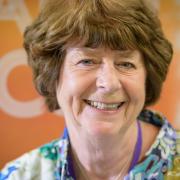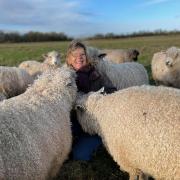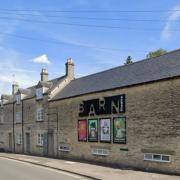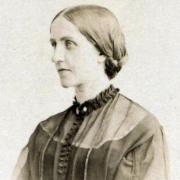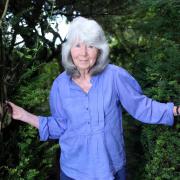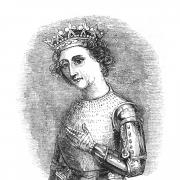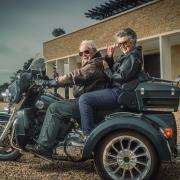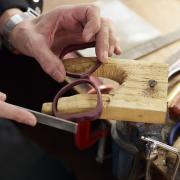To mark Armistice Day this month, Stephen Roberts has delved into the archives to find out more about Oxford-born medical officer Captain Noel Chavasse, who is the only man to have been awarded the Victoria Cross twice during the Great War

Only three men in history have won the Victoria Cross twice (the semi-mythical double VC or 'VC and Bar'), and only one of those during the Great War. His name was Noel Chavasse. Captain Chavasse was not even a soldier. He was actually a medical officer, who earned his VCs on the Somme and at Ypres.
Noel Godfrey Charvasse was an identical twin to Christopher, who'd beaten him into the world by some 20 minutes. The pair were born at the vicarage of St Peter-le-Bailey, 36 New Inn Hall Street, Oxford (November 9, 1884). They were among seven offspring of the Reverend Francis Chavasse (rector of St Peter-le-Bailey until 1889 and Principal of Oxford's Wycliffe Hall) and Edith Jane (née Maude). Neither twin was robust, delaying their dual christening until December 29. Both of them were hit by typhoid in their first few months, so went through the ritual of being photographed in case their lives were to be brief.

After being home-schooled, the twins attended Magdalen College School, aged 12 (1896-1900), before heading up north when their father became Bishop of Liverpool in 1900, by which time they would have been aged 15. Come 1907, the immensely gifted Noel (by now 22), having shared rooms in Kettle Hall with his twin, would graduate from Trinity, Oxford, with a 1st in Natural Sciences (B.A. 1907), staying on thereafter to study medicine, gaining a 1st in Physiology (M.A. 1909). He qualified as a doctor in 1912, aged 27 and researched blood plasma at Radcliffe Infirmary, Oxford.

Noel was also an accomplished sportsman, having been a rugby player and an athletics and lacrosse 'blue'. It was very much the era of the talented amateur and Noel participated for Great Britain at the 1908 London Olympics, as did his twin (both competing in the 400 metres, although neither progressed beyond the heats).
The time for games would soon be over, however, and with war approaching, Noel joined the RAMC (Royal Army Medical Corps) as a commissioned officer (Lieutenant). He would serve on the Western Front, in France and Belgium, being attached to the 10th King's (Liverpool Scottish) Regiment. In letters home Chavasse described the squalor of the trenches, the strain that men were under, the carnage caused by going 'Over the Top', and his work, doing the best he could for wounded and dying soldiers. His letters are noble, and, in spite of all hardship, never self-pitying.

Noel Chavasse was much-admired by the soldiery, who regarded him as their lucky mascot and dubbed him 'the Doc'. He was athletic, bold, generous, and put the welfare of his patients before his own needs, often at personal risk to his own safety. He would venture into 'No-Man's Land', searching out wounded men who needed treatment. Another of his duties was helping arrange burials for those who'd perished, something he felt should be done properly. He was like a guardian angel and was awarded the MC (Military Cross) for his heroism in 1915, also being Mentioned in Despatches in the same year (November). Chavasse was young, open-minded, and ready to try the latest treatments: he was among the first doctors to adopt a new anti-tetanus serum. He was also outspoken in his concern for the rank and file and openly-criticised the lack of compassion shown to victims of shell shock. He would also find ways of keeping the men's spirits up, even providing socks (1,000 pairs) from his own money.
A family member was lost in June 1915, Captain Frank Chavasse, a cousin, who was killed in Aden, aged 30, followed by another cousin, Arthur Chavasse, also a doctor, who died of pneumonia on the Western Front, in March 1916. This all must have weighed heavy, although Noel was also looking forward to a day without war, getting engaged to his first cousin, Gladys Chavasse, the following month.
Noel's first VC was awarded for actions on August 9 and 10, 1916, 'for most conspicuous bravery and devotion to duty', during the 2nd phase of the Battle of the Somme. Over those two days, it is estimated that Chavasse saved the lives of around 20 seriously wounded soldiers, whilst also being wounded himself. His efforts were almost superhuman: tending to the wounded under fire; searching for them in front of enemy lines; carrying them to safety over a distance of 500 yards, and, never neglecting the less serious cases that also needed attention. All of this was accomplished in the midst of 'Hell' with bullets flying all around, which Chavasse calmly ignored. He probably would have described it modestly as, 'just another day at the office'. King George V, who presented him with his VC at Buckingham Palace, in February 1917, might have begged to differ. The toll that the Great War took on families was shown again on July 4, 1917 when Noel's younger brother, Aidan, was killed on the Western Front, aged 26.
By the end of July 1917, Chavasse's battalion had moved to trenches located to the north-east of Ypres, in Belgium. The British Army was about to launch the 3rd Battle of Ypres (Passchendaele), which duly began on July 31. Noel's actions between July 31 and August 2 would see him awarded a bar to his VC (effectively a second VC). On the battle's first evening Noel received a nasty head wound due to a shell splinter, but flatly refused to be evacuated. Instead, he repeated his heroism of the previous year, heading into 'No-Man's Land' in appalling weather and under heavy fire, to locate, and tend to, the wounded.
It is believed that Chavasse may have received two further wounds at this time, but doggedly, he pressed on. He was undoubtedly in great pain, and was worn out, but he persisted in saving lives until, on August 2, in the early hours, he was struck by a shell. Although he'd suffered further multiple injuries, the gallant Chavasse crawled back a ½ mile to try and get assistance for his wounded comrades. Noel mustered sufficient strength to dictate one final letter to Gladys, whom he'd intended to marry later that month. He died on August 4, early in the afternoon, aged 32. His VC citation would praise his 'extraordinary energy and inspiring example'.
Among Noel Chavasse's last words were, 'Duty calledand called me to obey.' He was a true Christian whose devotion to others made him oblivious to danger. To those words we should add, 'Greater love hath no man than this, that a man lay down his life for his friends.' He lies buried in the Brandhoek New Military Cemetery, in Belgium, his headstone unique in bearing a representation of his two VCs side by side and those words from the Gospel According to St John ('Greater love hath no man ...' Noel's twin, Christopher, was awarded the MC for his bravery during the Great War, and described how he knew Noel had died, via a twin's sixth-sense, as he felt that half of him had gone. Christopher died in 1962, aged 77.
We know of at least 16 memorials that have been erected in honour of Noel Chavasse, a higher number than is devoted to any other VC recipient worldwide. Liverpudlians voted the son of the Bishop of Liverpool the third greatest 'Merseysider' of all time in a 2003 poll.
THE DOUBLE VCs
-Lt-Col Arthur Martin-Leake (1874-1953) - VCs awarded 1902 (2nd Boer War), 1915 (WW1).
-Capt. Noel Chavasse (1884-1917) - VCs awarded 1916 and 1917 (both WW1).
-Capt. Charles Upham (1908-1994) - VCs awarded 1941 and 1945 (both WW2).
References
-Victoria Cross Heroes, volume II
(M Ashcroft, 2016)
-BBC Website (bbc.co.uk)
-VC Online (vconline.org.uk)
-Imperial War Museum (iwm.org.uk)
-In the Footsteps (inthefootsteps.com)
-The Telegraph (telegraph.co.uk)




